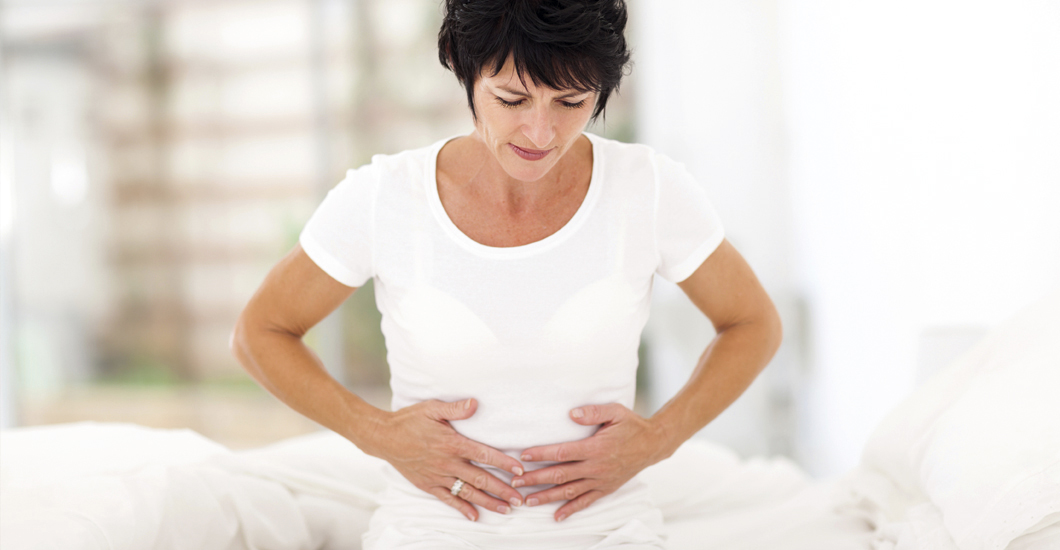Gastritis: Myths and facts
Doctor's advice, Nutrition & fitness /

Gastritis has to be one of our most common complaints in everyday life. We've all experienced that burning pain in our stomachs at some point. Let's look at some of the most common questions around this condition.
Myth: Eating citrus fruits can give you gastritis.
Fact: No. Citrus fruits on their own won't increase the acidity of the stomach enough to cause gastritis. What happens is that acidic foods can trigger gastroesophageal reflux or GERD,(food coming back up from the stomach into the esophagus) and cause symptoms such as a burning sensation in the upper central abdomen, heartburn, and bloating, explains gastroenterologist Dr. Oscar Gutiérrez. Because there are many causes of inflammation and irritation of the stomach lining, the best thing to do is to pay attention to which foods repeatedly give you digestive problems, because everyone is sensitive to different things and there are no hard and fast rules. What is good for one person can be terrible for someone else and it's best to eliminate those trigger foods from your diet.
Myth: Gastritis is caused by stress.
Fact: No. Though your mental health can accelerate or worsen your gastritis pain – and many other health problems – there isn't sufficient medical evidence showing that stress is responsible for chronic gastritis, or, gastritis that persists over months or years. Worries, bad temper, and overexcitement can temporarily increase acid secretion from the stomach, and this can add to the sharp pain in the upper abdomen that happens during acute gastritis (gastritis that lasts for a short period of less than a few days).
Myth: Going hungry can cause gastritis.
Fact: Not directly. Skipping meals and going for a long time without eating can cause the gastric juices to irritate the stomach lining. In addition, when we are very hungry, we tend to eat too much food, which can cause the digestive system to become increasingly sensitive. It's best to eat five to six small meals per day, and enjoy what's on your plate.
Myth: Smoking damages your lungs, but not your stomach.
Fact: Wrong! Most people don't associate smoking with gastritis, but it's been shown that nicotine and other toxins in cigarettes increase production of hydrochloric acid in the stomach, which can cause a bout of gastritis. Smoking is also a direct cause of esophageal, pancreatic, and stomach cancer. Until recently, it was believed that coffee could cause this condition, but no extensive studies have demonstrated that moderate consumption of coffee (between three and four cups per day) can cause these symptoms. On the contrary, the soluble fiber found in coffee contains many substances (antioxidants, minerals, and vitamins) that are beneficial for gut flora.
Myth: Gastritis is an infection.
Fact: Gastritis is caused by a bacterial infection. In the eighties, Australian gastroenterologist Barry Marshall found that bacteria living in the stomach lining, called Helicobacter pylori, are directly responsible for the majority of cases of gastritis, ulcers, and stomach cancer, because they cause permanent inflammation of the lining. Recently, the World Health Organization gave the bacteria a category 1 carcinogen classification for its proven cancer-causing ability. Some people may take medications that contain a component known as Omeprazole, which reduces the amount of hydrochloric acid in the stomach, in order to alleviate symptoms, but this does not eradicate the bacteria. Treatment involves using specific antibiotics to attack the microorganism at the root.
Myth: Children don't get gastritis.
Fact: Clinical studies have shown that up to 80% of children in developing countries have had a Helicobacter pylori infection before the age of 10. This means that children are susceptible to the illness. Additionally, children normally follow the habits of adults, and it is increasingly common that conditions which were previously only diagnosed in adults are being diagnosed in children. Packaged snacks and fast food contain fat, sauces, condiments, preservatives, and additives that irritate the stomach lining. And let's not forget that soft drinks, carbonated or not, contain a mixture of various chemical elements and artificial flavors that increase acidity and acid secretion in the stomach. Because of these factors, gastritis can happen to anyone, regardless of age, gender, or socio-economic status.
Myth: Pain-killers can help to alleviate gastritis.
Fact: No. Pain-killing medications like analgesics and anti-inflammatories that are sold over-the-counter, as well as antibiotics, weaken the stomach's defenses.
They should only be taken occasionally and even less often if you have stomach pain. Many people take this kind of analgesics to alleviate gastritis, when all they end up doing is aggravating their condition. These people should only take analgesics regularly for certain conditions, such as arthritis, and their dose should be prescribed by their doctor. They should also avoid medications that interact directly with the stomach, and try to always take the medication with food or with antacids, to reduce pain in the stomach lining.
Myth: Antacids cure gastritis.
Fact: No. Antacids are a short-acting medication –they alleviate the problem but do not cure it. And they're not harmless.
A Dutch study published last year in The Journal of the American Medical Association (JAMA) showed that antacids can increase vulnerability to other types of infections, while the natural acidity of the stomach is a defense mechanism against pathogens in the food that we eat. By blocking the production of acid, microorganisms are able to cause a higher number of infections. When it is necessary to take antacids for more than a couple weeks, it is important to see your doctor to determine the cause of your symptoms.
Myth: Drinking lots of water helps.
Fact: No. Though water is very important, the quantity of liquid that the body needs is between two and three liters per day, including what we get from soups, fruit, salads, coffee, tea, and juice. Drinking more than this can be harmful for many reasons, including the fact that the kidneys are not capable of filtering large amounts quickly enough. This means that components of the blood (sodium, potassium and chloride) are diluted, which can lead to swelling of the brain and other changes to the vital organs. Drinking too much water also alters the pH of your stomach which can intensify symptoms of gastritis.
The best way to treat gastritis is naturally, with a few simple lifestyle changes: eating more fruits (except citrus) and vegetables, avoiding smoking and excessive drinking, and learning to face difficulties calmly.


